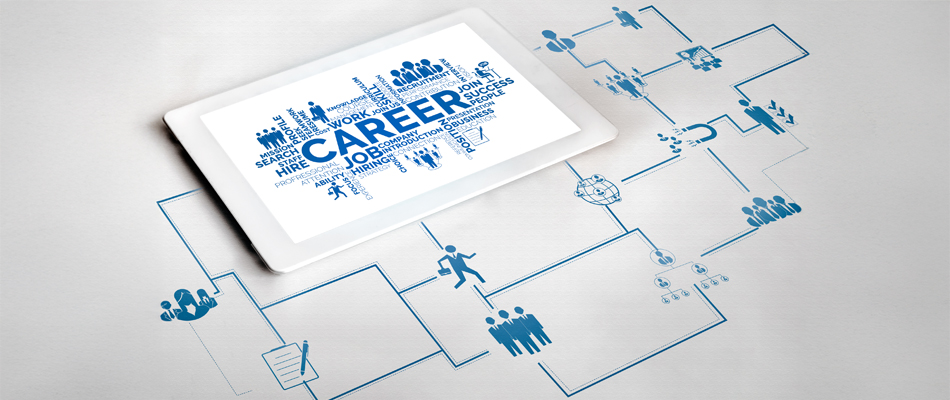Digital transformation is reshaping every sector, as companies collect vast quantities of information. Marketers gather this information from website visits, social media interactions, email open rates, and mobile app activity.
The ability to turn this raw data into actionable insight underpins successful digital marketing strategies. Digital analytics serves as the foundation for online strategy, enabling marketers to understand what users do, why they do it, and how to improve outcomes.
In this article, we will cover the importance, tools, and types of digital analytics. We will also cover how advanced Digital Marketing programmes can train you for this field.
Table of Contents
- What is Digital Analytics?
- Types of Digital Analytics
- Why Digital Analytics Matters for Businesses?
- How Does Digital Analytics Work?
- Common Tools and Platforms Used in Digital Analytics
- Applications of Digital Analytics Across Sectors
- Challenges in Digital Analytics
- Explore Our Other Programmes
- Conclusion
- What is Digital Analytics? – FAQ
What is Digital Analytics?
Digital analytics is the process of collecting, measuring, and interpreting data from digital sources. You then clean, structure, and analyse the data to reveal patterns and trends in user behaviour.
Unlike traditional analytics, which rely on surveys or periodic reports, digital analytics captures real-time interactions. Track metrics such as click-through rates, session duration, conversion funnels, and bounce rates to carry out this process.
Organisations across industries apply digital analytics. Marketers refine campaigns, e-commerce platforms understand purchasing behaviour, educational institutions monitor learner engagement, and public services track citizen interactions. At Regenesys Education, the Postgraduate Diploma in Digital Marketing includes a module on Digital Analytics and Search Engine Marketing.

Types of Digital Analytics
Digital analytics provides insights that help businesses understand past performance, identify causes, predict outcomes, and guide decisions. By applying different types of analytics, organisations can move from simple reporting to strategic action.
To develop a better understanding of what is digital analytics, let us explore its various types:
- Descriptive Analytics: Tracks past performance, such as last month’s website traffic or bounce rates.
- Diagnostic Analytics: Investigates causes, for example, analysing why a landing page has a high exit rate.
- Predictive Analytics: Uses historical data to forecast outcomes, such as next quarter’s sales.
- Prescriptive Analytics: Suggests strategies based on predictions, like switching campaign channels or optimising content.
Read more on Digital Marketing Trends in 2025: All You Need to Know
Why Digital Analytics Matters for Businesses?
Understanding data transforms decision-making. Businesses that use digital analytics gain insight into what customers want and how they behave. This allows businesses to reach consumers more cost-effectively.
Some of the benefits that a business can gain from digital analytics include:
- Understand customer behaviour: Identify which pages users visit, where they drop off, and which content resonates.
- Improve marketing ROI: Focus budget on channels that drive real conversions.
- Customise user experiences: Tailor content and design based on preferences or past actions.
- Track conversions and engagement: Measure click-throughs, form submissions, and purchases to evaluate success.
- Support predictive decisions: Anticipate trends, forecast demand, and reduce gaps in the market.
Read more on Is PGDip in Digital Marketing Worth It in 2025-26?

How Does Digital Analytics Work?
Digital analytics follows a structured process that turns raw data into actionable business insights. Each stage is crucial for accuracy and relevance. By mastering these steps, businesses can understand user behaviour, optimise campaigns, and make informed decisions that drive performance.
The process generally includes:
- Data Collection: Gather raw data from websites (page views, sessions), mobile apps, online ads, social media, and CRM systems.
- Data Processing: Clean (remove duplicates/errors), structure (categorise/tag), and store data in usable formats.
- Analysis & Interpretation: Apply metrics and tools to explore data. Some metrics include traffic sources, bounce rate, and click-through rate (CTR).
- Reporting & Action: Present findings in dashboards or reports, then refine campaigns, adjust budgets, and optimise audience targeting.
Common Tools and Platforms Used in Digital Analytics
Turning raw data into actionable insights requires specialised tools. Digital analytics professionals use platforms that track behaviour, display metrics, and integrate multiple data sources. Selecting the right combination helps businesses optimise campaigns, improve user experience, and make informed decisions.
Listed below are some common tools and platforms used in Digital Analytics:
- Google Analytics / GA4: Tracks website traffic, user behaviour, and conversion funnels.
- Google Data Studio: Builds interactive dashboards and displays data from multiple sources.
- Adobe Analytics: Explores customer segments, cross-device journeys, and advanced metrics.
- HubSpot Analytics: Combines email, social media, advertising, and CRM data for holistic reporting.
- Hotjar / Crazy Egg: Provides heatmaps and session recordings to show how users interact with a site.
Read more Who Should Study PGDip in Digital Marketing? A Guide for Aspiring Professionals
Applications of Digital Analytics Across Sectors
Digital analytics extends far beyond marketing, providing insights that drive performance, efficiency, and engagement across industries. By analysing user behaviour, interactions, and trends, organisations can make data-driven decisions tailored to their sector, improving outcomes and optimising strategies.
The Postgraduate Diploma in Digital Marketing from Regenesys Business School helps students to apply analytics across marketing. This includes digital agencies, public institutions, and education, combining theoretical knowledge with practical skills.
Some applications of digital analytics include:
- Marketing: Evaluates campaign performance, segments audiences, and measures ROI across channels.
- E-commerce: Recommends products, monitors cart abandonment, and optimises checkout processes.
- Education: Analyses learner engagement, drop-out rates, and interaction patterns to enhance outcomes.
- Public Management: Improves service delivery, evaluates citizen feedback, and ensures government digital initiatives are effective and responsive.

Challenges in Digital Analytics
Digital analytics offers valuable insights, but professionals must navigate several challenges to ensure accurate, ethical, and actionable results. To address these challenges, organisations must focus on ethical data management. They should also invest in training, adopt automation and use data-cleaning tools.
The Regenesys Postgraduate Diploma in Digital Marketing prepares students with practical skills and knowledge in data privacy and analytics applications. This prepares them to overcome challenges confidently across industries.
Common issues include:
- Data privacy and compliance: Regulations in South Africa govern how user data is collected, stored, and used.
- Data quality issues: Incomplete, duplicate, or inaccurate data can skew analysis.
- Integrating multiple data sources: Combining web, CRM, social media, and app data can be technically complex.
- Skill shortages in analytics: Finding professionals who can operate tools and interpret insights in a business context remains difficult.
Read more on PGDip in Digital Marketing: Practical Skills for the Modern Marketer
Explore Our Other Programmes
Conclusion
Digital analytics is central to modern business strategy, turning raw digital data into insights that inform smarter decisions, optimise campaigns, and improve user experiences. With applications across marketing, e-commerce, education, and public management, professionals with strong analytics skills are in high demand.
Professionals should consider the Regenesys Postgraduate Diploma in Digital Marketing to develop expertise in digital analytics. Additionally, it also helps professionals better understand search engine marketing and data-driven strategy. This prepares graduates to deliver measurable impact across sectors.
Take the next step in your career by enrolling for the programme on the Regenesys Education website today.
What is Digital Analytics? – FAQ
What is digital analytics?
Digital analytics is the process of collecting, measuring, and interpreting data from digital channels. This helps businesses to understand user behaviour and improve business outcomes.
Why is digital analytics important for businesses?
It helps organisations optimise marketing campaigns, personalise experiences, improve ROI, and make predictive, data-driven decisions.
What are the main types of digital analytics?
The main types of digital analytics include descriptive, diagnostic, predictive, and prescriptive.
Which digital analytics tools do organisations commonly use?
Google Analytics/GA4, Google Data Studio, Adobe Analytics, HubSpot Analytics, Hotjar, and Crazy Egg are some tools used in digital analytics.
What sectors use digital analytics?
Marketing, e-commerce, education, public management, and any industry using digital platforms to engage audiences.







